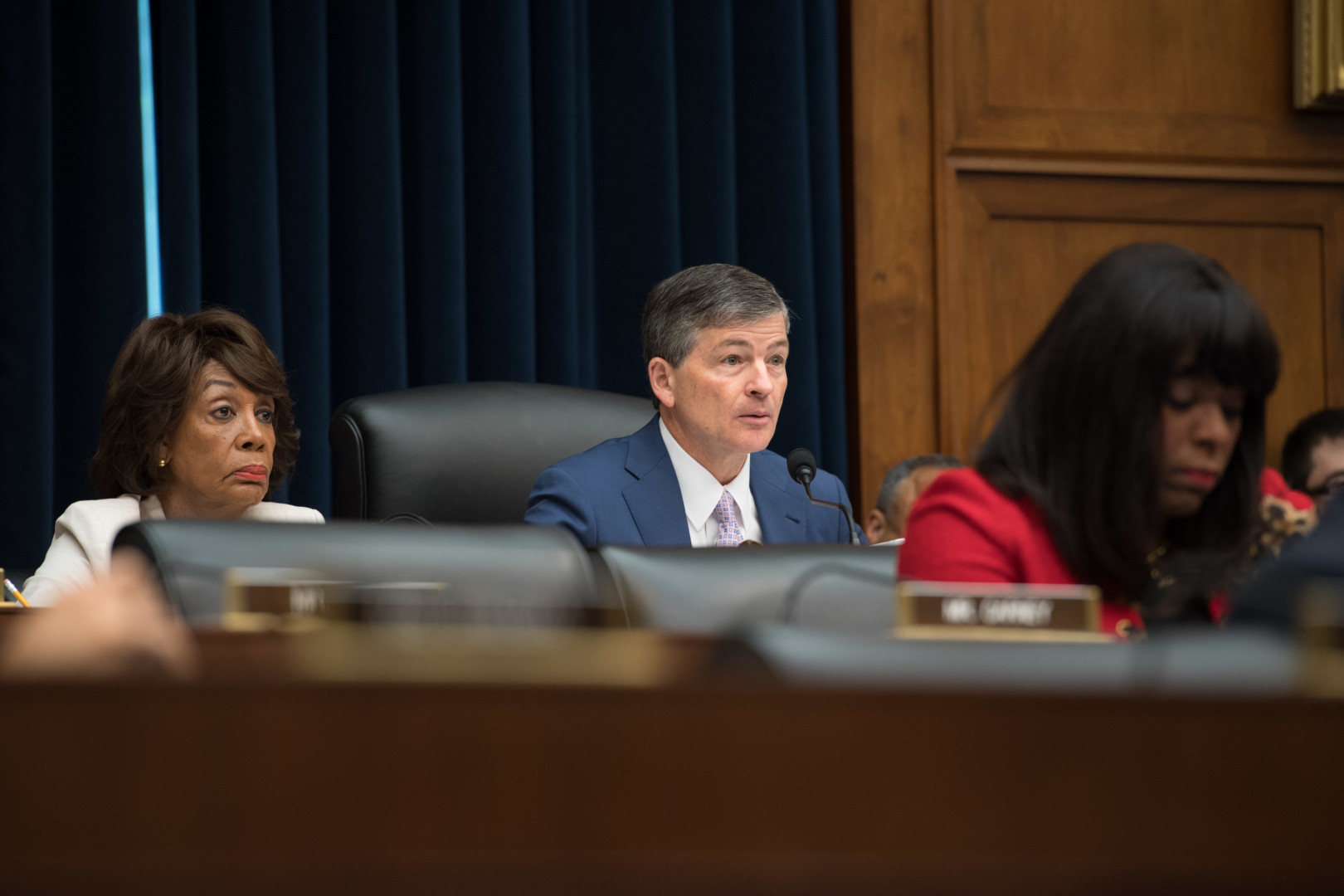The House Financial Services Committee on Tuesday advanced legislation that would retool key elements of the 2010 Dodd-Frank Act. They did so without any major amendments, meaning it shouldn’t have any problem passing with Republican votes on the House floor.
The move opens the door for the House to consider the measure, sponsored by Committee Chairman Jeb Hensarling (R-Texas), before the end of the year.
When asked if the House will consider the legislation before the end of this year, a spokesman for House Majority Leader Kevin McCarthy (R-Calif.) said the office currently does not plan to make any announcements regarding timing
The committee approved H.R. 5983, which Hensarling authored, by a mostly party-line vote of 30 to 26. Rep. Bruce Poliquin (R-Maine) voted against the measure, and he did not answer reporters’ questions about his reasons for the vote.
Poliquin is considered one of the most vulnerable House Republicans this election year. Another vulnerable GOP lawmaker, Rep. Frank Guinta of New Hampshire, did not vote at the markup. Today is New Hampshire’s primary, where Guinta faces a challenger.
The measure advanced with only a technical substitute amendment that Hensarling offered at the beginning of the markup. Hensarling later told reporters that the amended version contains mostly typographical changes.
The bill, which exceeds 500 pages in length, would overhaul dozens of regulations outlined in the 2010 Dodd-Frank law. It would restructure the Consumer Financial Protection Bureau into a nonpartisan commission subject to the congressional appropriations process, repeal the bank resolution process that Dodd-Frank established in favor of bankruptcy and strip the Financial Stability Oversight Council of much of its authority to declare systemically important financial institutions.
Republicans used the markup to promote the bill as a better way to regulate Wall Street than the Dodd-Frank paradigm. They see the measure as cracking down harder on big banks than the current, post-recession law. GOP lawmakers also said major financial institutions don’t like Hensarling’s proposed changes, and that many of those firms support Democratic presidential nominee Hillary Clinton because of the competitive advantages they’ve gained under Dodd-Frank.
Rep. Sean Duffy (R-Wis.) noted today that Clinton has received more campaign donations from the financial industry than her GOP rival, Donald Trump.
“Hillary Clinton doesn’t support the repeal of Dodd-Frank. Hillary Clinton supports Dodd-Frank and has gotten the most money from Wall Street,” said Duffy, who spoke in favor of Trump at this year’s Republican National Convention.
Lawmakers used Tuesday’s markup more for the purposes of explaining their positions on the bill than aiming to change it through the amendment process. The committee spent more than an hour on opening statements from members, beginning with Hensarling and ranking Democrat Maxine Waters (Calif.), before she made clear that Democrats would not offer any amendments. She indicated that the process would be useless since Republicans would likely reject them. For that reason, panel Democrats had decided to “dispense with this political theater,” Waters said.
Opting not to offer amendments precluded Democrats from turning the markup into a promotion of policies that liberals have championed, such as the reinstatement of the Glass-Steagall Act or the strengthening of the CFPB. But Waters insisted that the markup was not a “serious attempt to move thoughtful legislation.”
Democrats also made it clear, in nearly every member statement, that they are even more convinced that they are on the winning side of the Dodd-Frank argument because of the CFPB’s enforcement action against Wells Fargo & Co. last week.
Waters, on multiple occasions, criticized the panel’s entire Republican membership for not making statements about the CFPB’s action at Tuesday’s markup or in the days immediately following its announcement.
Waters noted that the Senate Banking Committee, under the leadership of Chairman Richard Shelby (R-Ala.), has scheduled a hearing to examine the Wells Fargo scandal and its implications. Hensarling’s bill, she said, would make it “even easier for executives to escape accountability to shareholders.”
Hensarling told reporters following the hearing that the Wells Fargo issue is “certainly deserving of further inquiry.” He touted his bill’s increase in law enforcement penalties against rule-breaking financial institutions.
“We will certainly, as a committee, look into this matter,” Hensarling said.
This story has been updated to include a comment from McCarthy’s office.

